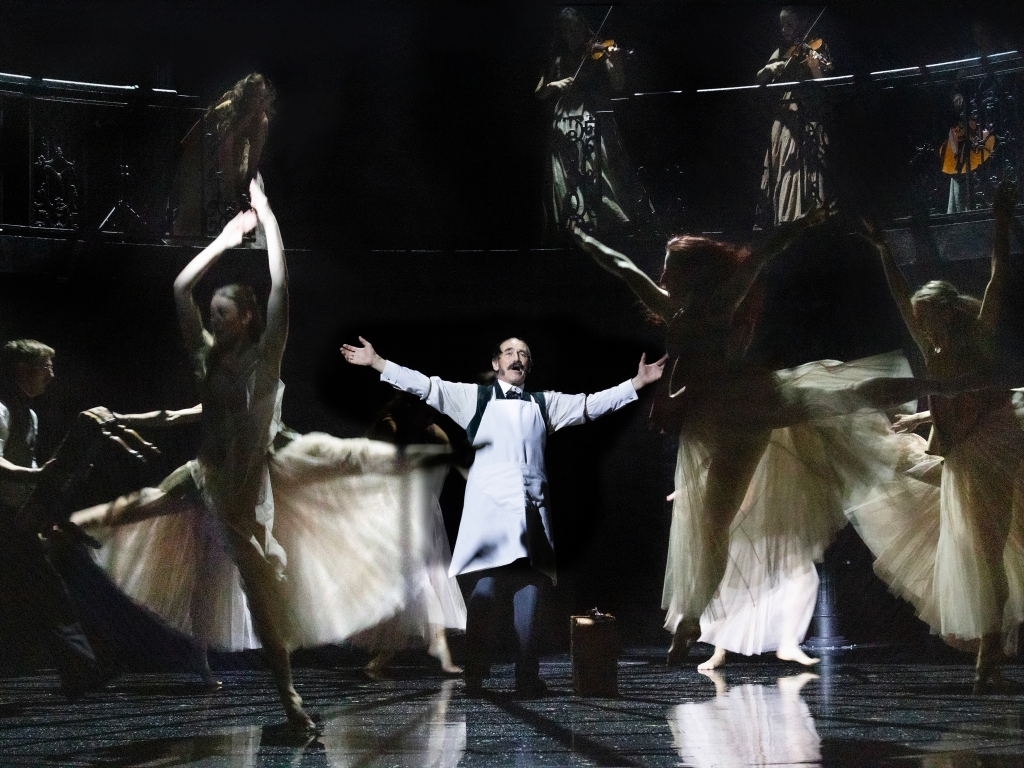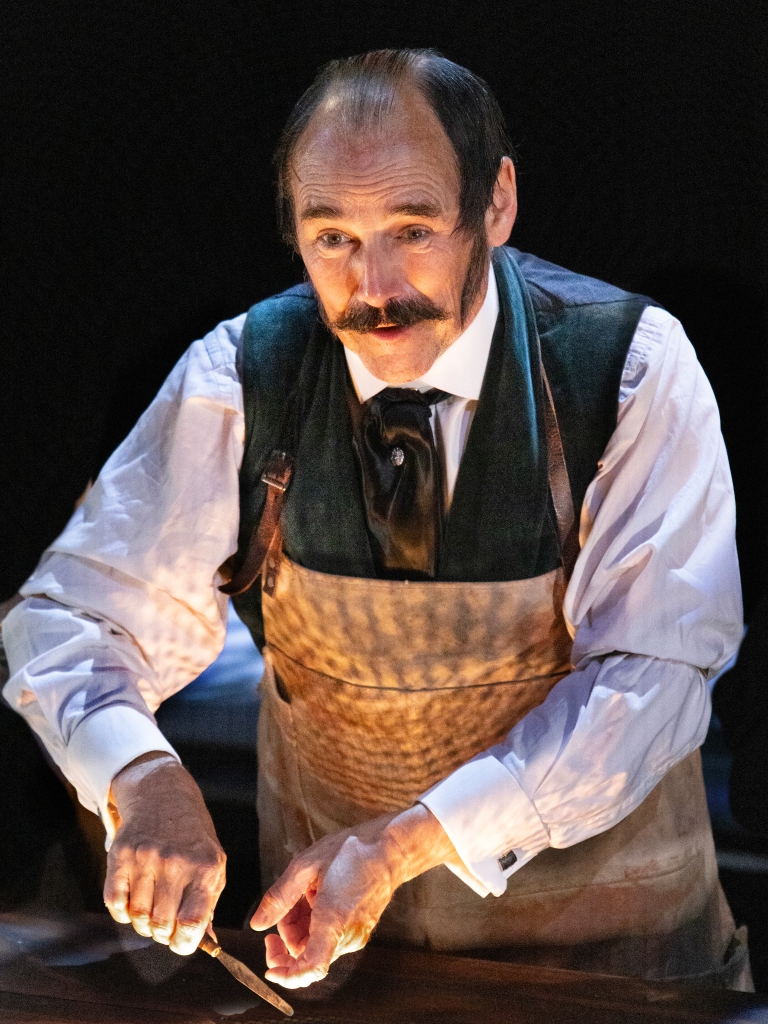History relives on the stage of the Harold Pinter through the return of this play dealing with the man that changed the face of medicine for good. Guillermo Nazara shares his views on the show, to let us know if this summer-running production actually feels under the weather.
“This is what happens when you work to change things. First they think you’re crazy, then they fight you, then you change the world.” Quoting Elizabeth Holmes is probably not the wisest thing to do when writing about the man who actually revolutionized healthcare and whose advances saved hundreds of lives within the precarious conditions of 19th-century hospitals. But in some distorted Shakespearian way, the follies of a delusional person can envelop the most outspoken truth.
Dr. Semmelweis is the story of a dreamer. And a saviour. In other words, a burden for those who benefit from the status quo. In a period where medicine could end more lives than the ones it could salvage, the discoveries of this one man broke a ground that, however, would not be accepted until 40 years later. It’s a tale as old as old as time (no pun intended): the crazy genius that fights for an idea all the rest regard as absurd – only to prove how right he was when too many mistakes have already been made.
The true events have enough substance to let the play write by itself. There’s conflict, tragedy, loss and triumph – the latter, though, in the decadent way of a Victorian drama. But this is not enough when translating what actually happened into what the stage demands for a piece to work. Writers Stephen Brown and Mark Rylance (who also portrays the title character) have done their job in converting the dreariness of a doomed life into a more plastic, eerie reverie. But this only seems to fully function on paper.

Intertwining dialogue with simultaneous dance sections to create a more symbolic, enhanced narrative, the approach however doesn’t fully land. And this is not because the concept is wrong, but because it’s not been delivered in the right manner. Its tip-toeing movements endow the montage with a pulse, but its writing still needs a heart that can beat through it. The problem may stem from its general outline. With an old retired Semmelweis looking back on his days working in a Viennese hospital, the recount still looks too linear despite its time-jumping framing device. Avoiding any spoilers, I must say that it’s actually the ending that provides the solution for the problem. The place where he spends the last fragment of his life is the key to restructure a script that, though blessed with depth and flawless understanding of its characters, is nonetheless problematic regarding its pacing and a few pointless scenes.
Directed by Tom Morris, the production is a visual success thanks to its seamless blending of immaculate blocking, exhilarating choreography (credit to Antonia Franceschi) and a captivating, evocative set and costume design by Ti Green. The integration of the auditorium as continuation of the scenic space definitely is an interesting idea, but a doubtful advantage all in all for a venue with such a restricted view as the Harold Pinter. With many of these effects completely blocked for at least a third of the whole audience, the performance is jeopardized sometimes for a few minutes – when a great deal of the public will acknowledge that something’s happening, but most frustratingly, won’t be able to see it (and occasionally, even hear it properly).

As for the cast, Mark Rylance excels with his extremely realistic, warm and incredibly approachable depiction of Semmelweis, cleverly encapsulating the chaotic, contradicting yet, somehow, logical personality of this heroic genius. In addition, Daniel York Loh also stands out in the role of Karl von Rokitansky, giving an impressively memorable rendition through his charismatic (a fairly said, scene-stealing) presence as an actor. Finally, Max Westwell makes a brief but notable contribution in as the dance captain in one of the ballet excerpts, reinforcing the ongoing impeccable performance of the show’s live string quartet.
It took almost half a century for Semmelweis to be given the recognition (but most importantly, the respect) of his peers. Certainly, this play does not need as much to deliver its full potential, but it still needs to mature in order to detach from the bleakness of its origins and unravel its inner gleam. A more unified blending of its fused genres and a different perspective to tell his story will make of this one more biopic the one work that stands on its own. There’s a reason why we’re telling his account. But that must not be the only one why we come see it.
All pictures credit to Simon Annand.
Dr. Semmelweis plays at London’s Harold Pinter Theatre until 7 October. Tickets are available on the following link.

